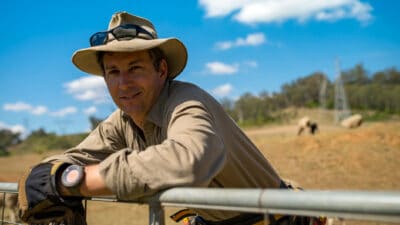One of the biggest lessons I've learned over the last four years of investing is the importance of reducing (financial) stress where possible. If I were 18 again, I'd probably make a few changes to how I invested in ASX shares, particularly in the early days.
It's been more than four years since I was 18 – the four years I'm referring to is the COVID-19 period and the subsequent inflationary era has been very unstable and unpredictable. Indeed, Gen Z (which includes 18-year-olds) are feeling very financially stressed at the moment, according to ASIC.
There's no mental benefit to checking your portfolio every day. Checking it doesn't make the portfolio perform better and it doesn't reduce any worries. In my mind, looking at it more is likely to increase stress and impatience. It'd be like checking your weather app every hour expecting that act to change the forecast.
I'd suggest it's ideal to have a portfolio of names that we are confident will do well in the long term and hopefully can do relatively well in a downturn. I'm excited when the share prices of my portfolio fall because it means I can buy more at a better price. That's why I only choose names I'd be happy to buy more of for the long term, even if they dropped 20% or 30%. It'd be stressful seeing large falls and questioning whether to sell.
There are two areas I'd suggest for young investors to consider.
High-quality, global growth ETFs
I strongly believe that all Aussies should have a significant portion of their portfolio invested in the global share market. Aussie companies are good, and there are some wonderful ones within the S&P/ASX 300 Index (ASX: XKO), but the ASX only makes up 2% of the global share market.
Imagine you're at a university of 25,000 students, and you're tasked with choosing 50 people from that university for a team that are most likely to be successful in life due to their own work and choices. You'd severely limit yourself if you only chose people from your own class. In this case, your class is the ASX, whereas the whole university is the global share market.
You don't need to know every single person/company yourself. There are exchange-traded funds (ETFs) that can do the investment choosing for us.
One of my favourites is Vaneck Morningstar Wide Moat ETF (ASX: MOAT), which only invests in companies that have strong competitive advantages, or economic moats, which are expected to endure for at least two decades. The Morningstar investment team invest if they think the target company is trading at a good price.
We can't rely on past performance being a reliable indicator of future performance, but over the past five years, the MOAT ETF has returned an average of 14.3% per annum.
Quality ASX shares
Keep in mind this – an investment that returns 9% per annum doubles in value in around eight years. It's not necessary to go for speculative shares to grow wealth. Starting as an 18-year-old means there's plenty of time for compounding to work its magic.
I think there are plenty of high-quality ASX shares that can deliver that 9% return or better. Just make sure to put the dividends received back towards buying new shares for the full benefit of compounding.
I'll briefly tell you about two of my favourites.
Brickworks Limited (ASX: BKW) is a major building products manufacturer that is benefiting from Australia's strong population growth. I particularly like it for the other two asset groups. It owns a large slice of investment house Washington H. Soul Pattinson and Co. Ltd (ASX: SOL), and Brickworks also have exposure to a large (and growing) portfolio of industrial/logistics properties – demand for these commercial properties is booming.
Wesfarmers Ltd (ASX: WES) is the business behind a number of well-known names like Bunnings, Kmart, Officeworks, Target, Priceline and Catch. The business has done well simply by opening new stores, making bolt-on acquisitions and investing in new sectors. It's the type of business I expect will still be doing well in 10 or 20 years, particularly with its expansion into healthcare.









